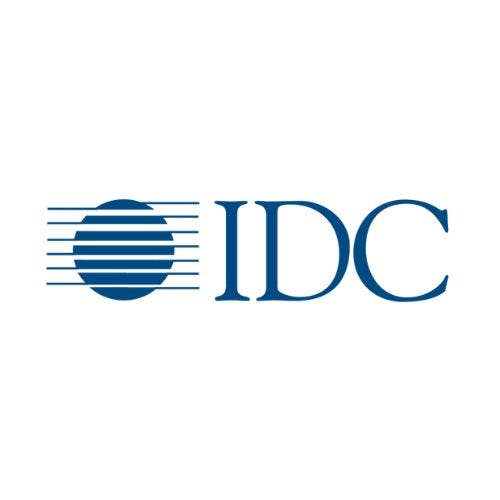Senior Research Director, Tom Seal and Research Manager European Enterprise Solution, Charles Aladesuru from IDC share their insights on reducing the administrative complexities are selling SaaS internationally. Their solution? Leveraging the capabilities of a merchant of record.


One of the reasons business founders choose the SaaS business model is because it can be readily scaled. First within your local addressable market, then globally. Cloud technology enables SaaS products to be launched small and grown quickly, without major infrastructure investments along the way. In technical terms, there are very few barriers to international expansion because SaaS is born global from day one.
While the prospect of new growth in international expansion is widely regarded as positive, it is equally as important to understand the new complexities that arise as a direct result.
Tackling the challenges of international expansion
Exploring some of the areas that will impact your SaaS business uncovers possible challenges with:
- Compliance with local regulations
- Managing and reporting the data of a global business
- Enabling a broad range of local payment methods
Focussing specifically on tax - reporting requirements vary significantly from country to country, or even state to state. At present, over 40 countries have implemented sales tax on digital goods and SaaS products. These sales tax laws vary by country which can be challenging for your business to keep a pulse on all of the different rules, especially if you are a scaling business with a lean team focussed on your product.
The next consideration is managing localization, both of your product but also how customers will pay for your product. This would include:
- Cosmetic localization like translating your product into native languages or adhering to cultural nuances like date and time formats.
- Optimizing pricing to suit the economic situation in each region based on your customers willingness to pay.
- Providing different payment methods for new customers groups that are accustomed to what they are used to whilst mitigating fraud.
At a glance the administrative duties that come with rapidly scaling a SaaS business internationally may be considered difficult but self-manageable. While pricing and payment plays a contributing role in your business achieving international success, it may fail to shed light on the extent to which your business will require the skill and capacity to manage a global business.
SaaS businesses will face a ton of work and risk just to set up a payments process.
There’s creating legal entities, tracking revenue, managing sales tax, dealing with local currency conversions, processing refunds and chargebacks, managing subscriptions, ensuring absolute compliance and protecting against fraud.
That complexity grows every time you enter a new market or jurisdiction. And each time there is a new need, you end up buying and integrating a new piece of software, leaving you stuck managing a fragmented payment stack.
Merchant of record - the solution to international SaaS expansion
Leveraging the capabilities of a merchant of record (MoR) could provide adept infrastructure for your international SaaS business aiding the sales execution process. This solution provides the business with global payment processing expertise, while outsourcing the workloads attached to sales tax, fraud attempts and financial compliance.
An external provider that acts as your MoR could serve your business as an all-in-one solution, saving money, time and helping your business avoid the misery of costly mistakes. A merchant of record acts as a reseller for your business assuming the financial and engineering liability of payment processing. They receive payments from your customers and pay you for your product without the need to burden your internal resources with:
- PCI and PA DSS compliance
- Payment security
- Credit card processing fees
- Settling disputes, refunds and chargebacks
- Calculating local sales taxes
- Currency management
Leading merchants of record providers are much more than payment service providers. An established MoR can ensure compliance guarantees when expanding into cross-border markets, as you are able to use their entity structure and local banking relationships for your SaaS business. They offer a complete solution that alleviates the operational pressure of growing internationally. This could be a perfect solution for your SaaS business offering flexible payments options to suit local preferences without having the responsibility of setting up merchant accounts in the countries your customers are in.
While it is possible to build yourself, building and maintaining your own payment systems could mean employing a dedicated team to provide round the clock support. Complying with Payment Card Industry (PCI) and Data Security Standards (DSS) would be an additional requirement to integrating payment gateways and managing contracts with different global payment service providers.
These payment related activities are essential but only represent part of a much bigger task in acting as your own merchant of record. The setting up of multiple entities is incredibly costly, time consuming and difficult to manage alongside growing your business. This route potentially slows down expansion and drives up costs as you may need to expand your workforce by hiring personnel with the right level of expertise.
Conclusion: Partnering with a merchant of record could be crucial to international expansion
In conclusion, an established merchant of record removes many of the complexities of selling globally. The partnership could be a crucial extension to your business allowing you the freedom to focus on showcasing your product while receiving the right data flows to support the managerial aspects of your business. An MoR would not only support your business with payments, but give you confidence with tax regulations, statutory reporting and ensuring that revenue recognition rules are applied correctly, giving you the confidence to prioritize product development and customer relationships over financial process infrastructure.




